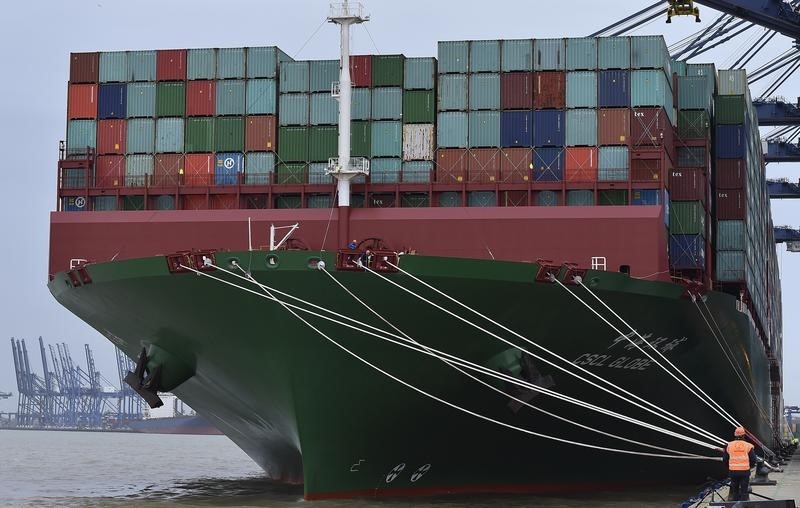By Andy Bruce and William Schomberg
LONDON (Reuters) - Britain's trade deficit widened more than expected in February, official figures showed on Thursday, suggesting the strong pace of economic recovery could cool slightly ahead of next month's national election.
The trade in goods deficit widened to a seven-month high in February and the value of monthly exports hit a more than four-year low. Furthermore, trade data for January was revised to show a weaker start to the year than previously thought.
A survey of businesses from the British Chambers of Commerce, the largest of its kind, also showed export growth weakened in the first quarter.
Taken together, the figures implied a long-awaited rebalancing of Britain's economy is still elusive, with big-spending consumers remaining the main driver of the recovery.
Alan Clarke, economist at Scotiabank, said monthly trade figures were volatile but so far signalled slower economic growth in the first quarter, even though consumer confidence and business activity remain strong.
"I think we are looking at a very good chance of GDP growth slowing to just 0.4 percent quarter-on-quarter in Q1," he added.
The economy expanded by 0.6 percent in the final three months of 2014.
A slowdown could complicate Prime Minister David Cameron's campaign for re-election on May 7. The first reading of economic growth for the first quarter will be published just over a week before the vote.
Sterling fell to its lowest level against the dollar in a week after the trade data.
The Office for National Statistics said the deficit in goods widened to 10.34 billion pounds from a shortfall of 9.17 billion pounds in January, bigger than all forecasts in a Reuters poll of economists.
Goods exports sank to 23.16 billion pounds, their lowest level in any month since September 2010. The falling exports mainly reflected weaker sales to the United States.
Declining oil exports pushed Britain's trade deficit with the European Union to 21.1 billion pounds in the three months to February, the widest since comparable records began in 1988.
A separate ONS survey showed rates of return for North Sea oil and gas companies fell to 10.4 percent at the end of last year, the lowest since records dating back to 1997.
The total trade deficit, including services, widened to 2.86 billion pounds from 1.54 billion pounds.

Thursday's BCC survey also showed British manufacturing export sales weakened in the first three months of this year, with most other measures of activity in both manufacturing and services also edging down.